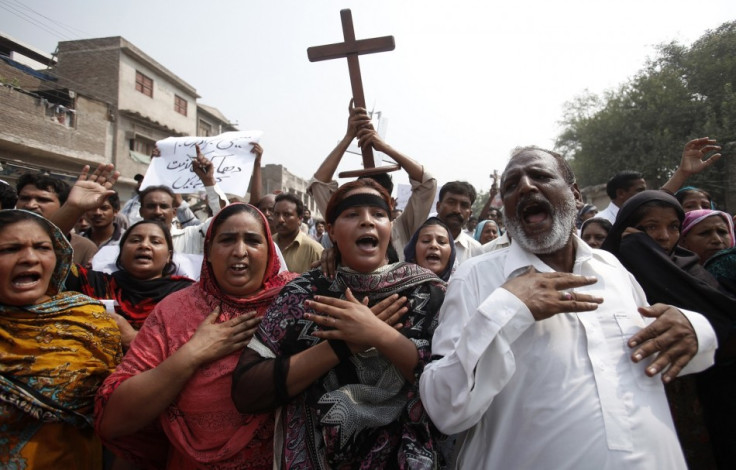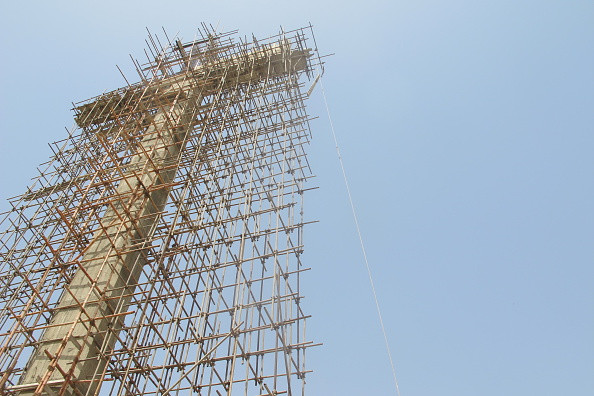Persecution of Pakistan's Christians by fanatical Islam is a betrayal of Jinnah and founding fathers

Christians in Pakistan come from diverse backgrounds and social classes. On the one hand, they have contributed out of all proportion to their numbers to nursing and teaching. On the other, the conversion over a hundred years ago of caste less people has created an underclass which has suffered disproportionately because of discrimination and persecution.
There has been significant middle-class flight and this highlights the parlous plight of those left behind. To be fair, the founders of the country were inspired by nationalist ideals which sought a homeland for the Muslims of South Asia but also included any minorities living within the boundaries of the new nation as equal citizens.
They were definitely not theocrats. However, almost from the beginning there has been incessant pressure from radical Islamists to turn Pakistan into a theocratic state where Christians and other minorities were reduced to being dhimmies (a medieval term for conquered non-Muslims, subject to their own laws) under Shari'a.
This campaign came to fruition under The Presidency of General Zia ul Haq and his programme of 'Islamisation'. Not only did this programme enforce Islamic penal law and restrict the freedom of women, it severely restricted the rights of non-Muslims in terms of giving evidence in the courts in certain cases and in access to equal opportunity.
Christians in Pakistan

Christians are a small minority in Pakistan, which is over 96% Muslim. Around 1.6% (2.5m people) of the population is Christian.
There have been a number of high-profile cases of Christians being persecuted, including a recent case where a couple were burned alive after claims that they desecrated the Qu'ran.
In April, suicide bombers targeted two churches in Lahore in a horrific attack that led to widespread protests and condemnation from throughout the world.
In April, Pope Francis drew attention to the case of an imprisoned Pakistani Christian woman who was sentenced to death in 2010 after being convicted on controversial blasphemy charges.
It also consigned them to the 'limbo' of separate electorates, where they could elect their own small number of members of Parliament but were otherwise excluded from public life.
Amendments to laws on incitement to religious hatred – originally enacted by the British – brought into existence the notorious blasphemy laws which now prescribe a mandatory death penalty for blaspheming the Prophet of Islam and life imprisonment for desecrating the Quran.
Numerous Christian, Ahmadi and even Muslim people have been accused of these crimes and convicted, though, thank God, none has as yet been executed. Very often the allegation is made to settle personal scores in property disputes or to silence ideological opponents.
Once an allegation is made extremist mobs, nurtured on texts of hate, pressurise police and judiciary to obtain a conviction. Even judges have been murdered for daring to resist such pressure. These laws have not just muzzled freedom of belief and of speech but they have made Christians and other non-Muslims perpetually fearful about being targets of the next accusation.
It has created a ghetto mentality amongst them and further removed them from the ambit of public life. The removal of the moratorium on the death penalty, ostensibly to deal with terrorism, raises the real prospect of someone now being executed for blasphemy. This would be a tragic development indeed.
Alongside legal hurdles, there is petty discrimination in employment, education and in the use of community facilities. The numbers of Christian and other communities are understated to prevent an extremist backlash but this, in turn, restricts their access to services of various kinds.
As if all of the above were not enough, religious minorities have become the target of extremist violence: churches and other places of worship have been attacked, worshippers killed and threats sent to educational and medical institutions.
The nation has to ask itself: is this what Muhammad Ali Jinnah and the founders wanted? If not, how have we reached this point and can we take a different path? We desperately need a constitutional affirmation of the equality of all citizens of Pakistan, with equal access to jobs and services.
The armed forces must be allowed to deal decisively with terrorism and serious consideration must be given by the authorities as to whether the blasphemy laws are truly Islamic. In the meanwhile, decisions about prosecution on allegations of blasphemy should be removed from local jurisdictions, which are vulnerable to mob pressure and be assigned to federal entities competent to deal with them without constant extremist pressure.
What was envisioned was a social democratic state, inspired by the 'ideals of Islam'. On this basis, Christians and others agreed to support its creation. It must not be allowed to become a narrow theocracy in which they have no place.
Bishop Michael Nazir-Ali is president of the Oxford Centre for Training, Research, Advocacy and Dialogue. He was 106<sup>th bishop of Rochester from 1994 to 2009.
© Copyright IBTimes 2025. All rights reserved.






















